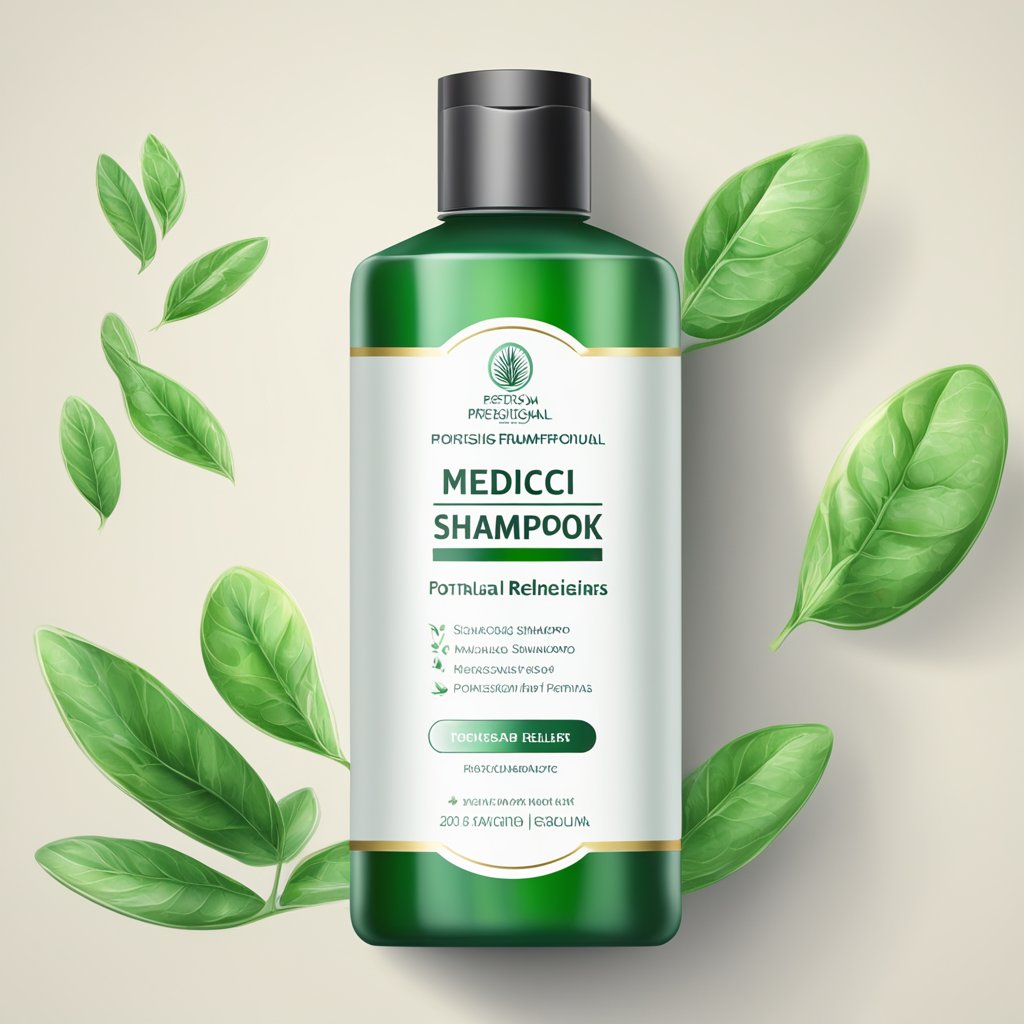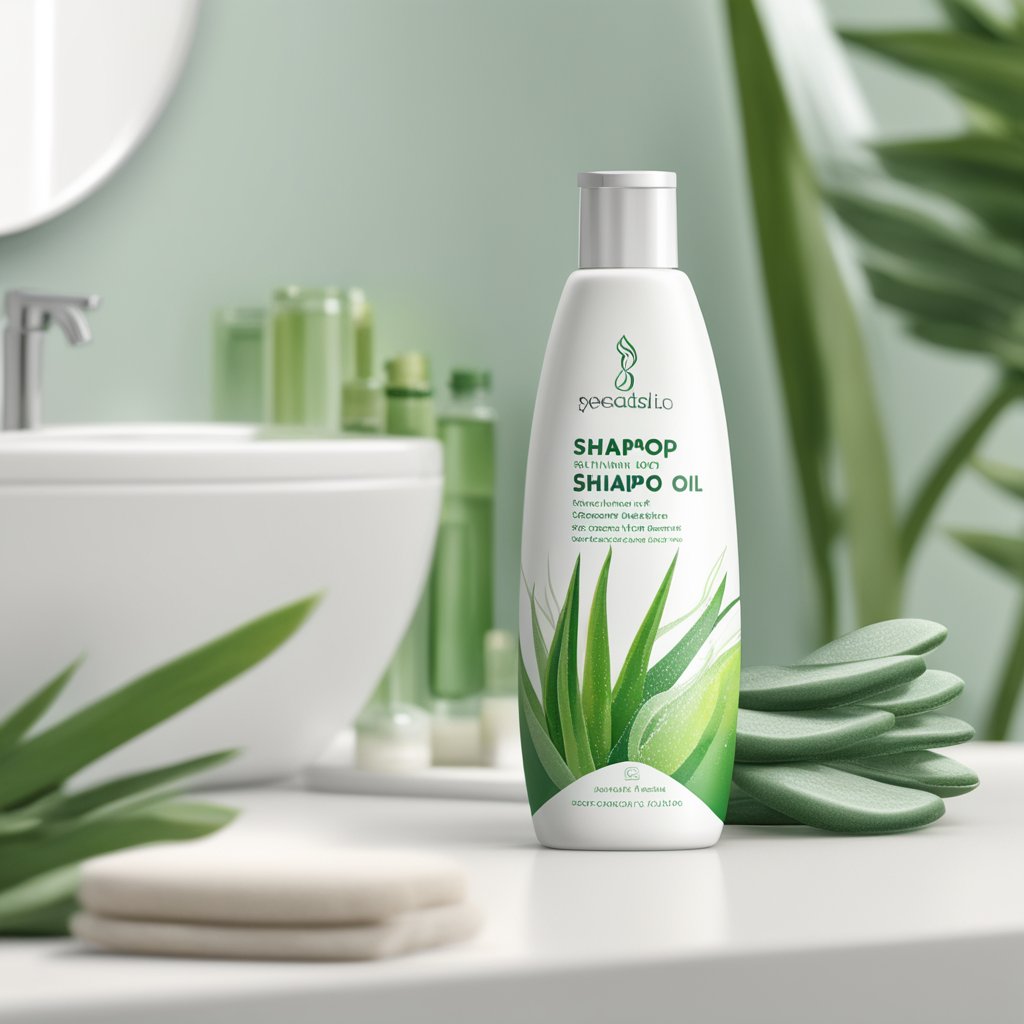Living with psoriasis can be a challenging experience, especially when it affects the scalp. This common skin condition leads to the rapid build-up of skin cells, causing scaling on the skin’s surface. For those with scalp psoriasis, this scaling can lead to dandruff-like flaking, itching, and sometimes even hair loss. Appropriate hair care, including the use of a suitable shampoo, is crucial in managing symptoms and maintaining scalp health.

Selecting the right shampoo for psoriasis may involve trial and error, as everyone’s skin can react differently to various ingredients. It is important to look for products that can help remove scales, soothe the scalp, and reduce itching, without further irritating the skin. Medicated shampoos containing coal tar, salicylic acid, or other therapeutic agents are often recommended by healthcare professionals. In addition, understanding the ingredients and their functions can guide individuals to make informed choices about which shampoo may work best for them.
Key Takeaways
- Psoriasis on the scalp requires careful selection of shampoo to manage symptoms effectively.
- Medicated shampoos with specific ingredients can assist in removing scales and soothing irritation.
- Understanding shampoo ingredients and their benefits is key to finding the right product for scalp psoriasis management.
Understanding Psoriasis and Scalp Health

Psoriasis is a chronic skin condition characterized by an overactive immune response, leading to accelerated skin cell production. This condition particularly affects scalp health, causing discomfort and noticeable symptoms.
Types of Psoriasis Affecting the Scalp
There are several types of psoriasis that can affect the scalp. The most common variant that I see is plaque psoriasis, which forms thick, red patches with silvery-white scales known as plaques. Another type is guttate psoriasis, which is characterized by small, dot-like lesions. A less common type is inverse psoriasis that may not show the typical scaling due to the moist areas where it tends to occur. Meanwhile, pustular psoriasis on the scalp is rare and can be seen as pus-filled blisters accompanied by broad areas of red, inflamed skin.
Recognizing Symptoms and Triggers
The symptoms of scalp psoriasis include redness, itching, and flaking similar to dandruff. However, unlike dandruff, psoriasis plaques are well-defined and may extend beyond the hairline. The scaling caused by scalp psoriasis can be intense, leading to a buildup of thick scales. Triggers for a psoriasis flare can vary from person to person, but common triggers include stress, skin injury, infection, and certain medications. It’s important to note that symptoms can range from mild to severe and can lead to temporary hair thinning due to inflammation of the scalp.
Selecting the Right Shampoo for Psoriasis
I understand that managing psoriasis can be a challenge, particularly when it comes to choosing the right shampoo. A good shampoo can help soothe the scalp and reduce symptoms, while the wrong product may exacerbate the condition.
Ingredients to Look for in Shampoos
When I select a shampoo for psoriasis, I prioritize ingredients that are known to alleviate symptoms and promote scalp health. Here are some key ingredients that I recommend:
-
Medicated ingredients: These are often found in over-the-counter and prescription shampoos, including:
- Coal Tar: Helps slow cell growth and reduce inflammation and itching.
- Salicylic Acid: Promotes the shedding of psoriatic scales.
- Ketoconazole: An antifungal that can help reduce flakiness and inflammation.
- Selenium Sulfide: An antifungal agent that can also decrease cell turnover.
-
Natural ingredients: I look for shampoos with natural ingredients that can soothe the scalp and provide additional benefits:
- Tea Tree Oil: Has natural antiseptic, antifungal, and antibacterial properties.
- Zinc Complex: Particularly zinc pyrithione, which is known for its antimicrobial and antifungal effects.
- Aloe Vera: Known for its calming and moisturizing properties.
- Green Tea Extract: Offers antioxidant properties that may soothe the scalp.
Ingredients to Avoid
My approach to selecting a psoriasis shampoo also involves avoiding certain ingredients that might irritate sensitive skin or dry out the scalp. These include:
- Sulfates: Can strip the scalp of natural oils, leading to irritation and dryness.
- Alcohols: Some types of alcohol can be overly drying, which I avoid, especially in high concentrations.
When I choose a shampoo, I tend to favor those that are labeled as suitable for sensitive skin, free from harsh chemicals, and specifically formulated to address the symptoms of psoriasis. This ensures I use a product that’s not only effective but also gentle on my scalp.
It’s essential to remember that everyone’s scalp and hair are unique, so what works for me might not work for someone else. Patch testing a new shampoo on a small area can be a wise approach before fully incorporating it into my routine.
Recommended Shampoos for Psoriasis
When dealing with psoriasis, selecting the right shampoo can make a significant difference in managing scalp itchiness, scaling, and plaque build-up. I’ll guide you through some of the top shampoos available, both over-the-counter and by prescription, that cater to the symptoms of psoriasis.
Over-the-Counter Options
-
MG217 Medicated Conditioning Shampoo: Infused with 3% coal tar, this shampoo helps reduce scaling and itching. It is formulated to slow down the rapid growth of skin cells and restore the scalp’s natural appearance.
-
Neutrogena T/Gel Therapeutic Shampoo: An effective treatment with coal tar extract that works to alleviate itchy flakiness and has long-lasting effects even after the shampoo is rinsed off.
-
DHS Sal Shampoo: Contains salicylic acid to help soften and exfoliate psoriatic scales. It’s gentle enough for daily use and works well for those with sensitive skin.
-
Biolage Scalp Sync Anti-Dandruff Shampoo: While not specific to psoriasis, its pyrithione zinc formula is beneficial for scalp health and can help mitigate dandruff, which is common among psoriasis sufferers.
-
Dermarest Psoriasis Medicated Shampoo Plus Conditioner: This two-in-one formula includes both medication to treat the psoriasis and a conditioner to help manage and maintain hair health.
-
Nizoral Anti-Dandruff Shampoo: This shampoo contains ketoconazole, an antifungal that can also ease psoriatic symptoms. It’s a potent option for those dealing with dandruff and scalp psoriasis.
-
Psoriatrax 5% Coal Tar Psoriasis Shampoo: Specifically designed for psoriasis, this contains a high concentration of coal tar, aimed at reducing severe symptoms more rapidly.
Prescription Shampoo Treatments
-
Prescription Shampoos: These often have higher concentrations of active ingredients or contain medications not available over-the-counter. Physicians may prescribe products with corticosteroids to reduce inflammation or other specific ingredients targeting psoriasis.
-
Medicated Shampoos: My healthcare providers have, in some cases, suggested medicated shampoos tailored to my specific condition. These are designed to treat severe psoriasis on the scalp and may include other ingredients to address issues such as infection or intense itching.
Each of the shampoos has distinct advantages and may work differently depending on the individual. It’s advisable to consult with a dermatologist to determine the most suitable option for your condition. They can recommend a treatment plan based on the severity of your psoriasis and your skin’s needs.
Management and Treatment Beyond Shampoo
When managing psoriasis, shampoo can be a critical component, but my approach encompasses a broader range of treatments to effectively reduce symptoms such as itchy and flaky scalp.
Complementary Scalp Psoriasis Treatments
For those struggling with the discomfort of scalp psoriasis, topical medications are often a first line of defense. I find that clobetasol propionate, a potent corticosteroid, helps in reducing inflammation and mitigating pain and itching. However, due to risks like skin thinning and photosensitivity, it’s crucial to apply them according to a dermatologist’s prescription. For daily management, incorporating coconut oil can soothe the scalp and loosen scales.
- Medications
- Corticosteroids (e.g., clobetasol propionate)
- Vitamin D analogues
- Coal tar
- Natural Remedies
- Coconut oil (apply to the scalp to moisturize and reduce flakiness)
Given that plaque psoriasis is an autoimmune disease, systemic treatments, like biologics or oral medications, can also be considered, particularly for more severe cases.
- Systemic Treatments:
- Biologics
- Oral medications (e.g., methotrexate)
When choosing a treatment path, I prioritize safety and carefully monitor my symptoms and any side effects. Regular use of sunscreen is recommended, especially when using medications that increase photosensitivity.
Consulting Dermatology Experts
A knowledgeable dermatologist is indispensable to me for a personalized treatment plan. Expert advice is vital, given the complex nature of psoriasis. A dermatologist can:
- Diagnose the condition accurately.
- Recommend prescription-strength treatments beyond over-the-counter options.
- Monitor the condition for any changes or complications.
I ensure to discuss all aspects of my symptoms with my dermatologist, including the impact of psoriasis on my quality of life. Safety and symptom management are the two pillars I insist upon in the treatments prescribed. For persistent or worsening symptoms, my dermatologist may suggest phototherapy as an option. The National Psoriasis Foundation recommends this treatment that involves controlled exposure to ultraviolet light, which can be highly effective in reducing the formation of psoriasis plaques.
Frequently Asked Questions
In my research and experience, certain ingredients and practices can have a significant impact on managing psoriasis. Below, I answer common questions about selecting the right shampoo for those with this condition.
What ingredients should be avoided in shampoos for those with psoriasis?
When selecting a shampoo for psoriasis, it’s crucial to avoid ingredients that can irritate the scalp or cause a flare-up. Alcohol, fragrances, and parabens are often harsh on sensitive skin and can exacerbate psoriasis symptoms.
How often is it recommended to shampoo when dealing with psoriasis?
I recommend shampooing less frequently, perhaps every other day or even less often, as overwashing can strip the scalp of natural oils and lead to increased dryness and irritation.
What are the benefits of using sulfate-free shampoos for psoriasis?
Sulfate-free shampoos are beneficial because they are milder and less stripping than sulfates, which can dry out the scalp and worsen psoriasis. They help maintain natural moisture levels while cleaning the scalp gently.
Are there specific shampoos that work best for psoriasis on color-treated hair?
For psoriasis on color-treated hair, it’s important to look for shampoos labeled as safe for colored hair. These typically will be sulfate-free and have added ingredients to help moisturize and protect the scalp without stripping color.
What factors should be considered when choosing a medicated shampoo for scalp psoriasis?
When choosing a medicated shampoo for scalp psoriasis, consider the active ingredients, such as salicylic acid or coal tar, which address the buildup of skin cells. Also, ensure that it is suitable for your skin sensitivity and does not conflict with other products you’re using.
Can a prescription shampoo be more effective for treating psoriasis, and what are the options?
Prescription shampoos often contain stronger concentrations of active ingredients like corticosteroids or vitamin D analogues and can be more effective for severe psoriasis. Options include clobetasol, ketoconazole, or calcipotriene shampoos, but they must be prescribed by a healthcare provider.